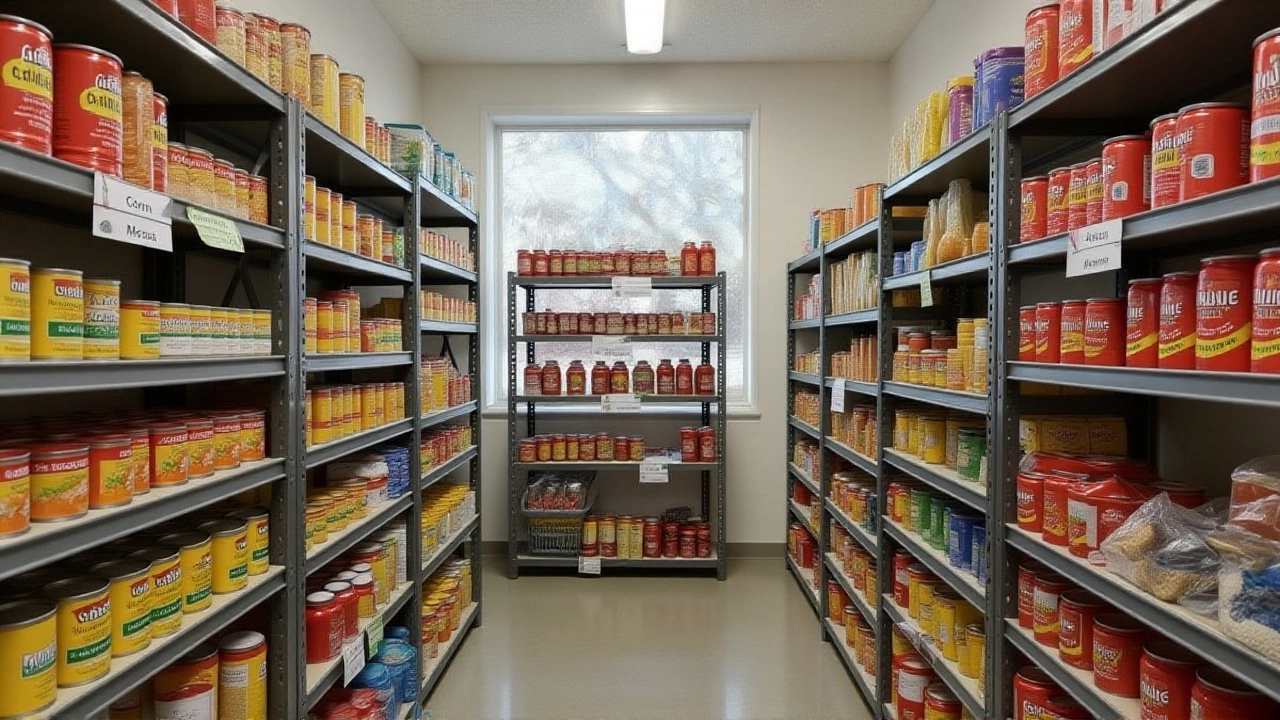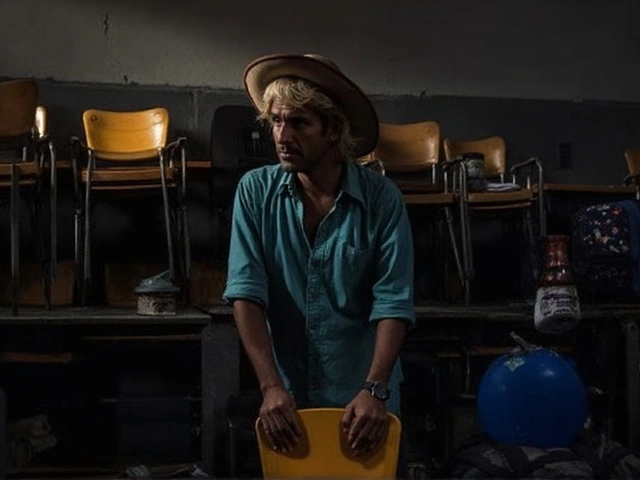Food pantries are now opening inside 10 public schools across Prince William County, Virginia, bringing shelf-stable groceries directly to students and families who need them most. The initiative, reported by News4 (WRC-TV), marks a quiet but powerful shift in how communities respond to child hunger — not by sending families to distant centers, but by meeting them where they already are: at school. The move comes as food insecurity among Virginia households has climbed 18% since 2020, according to Feeding America, and nearly 1 in 5 children in the county live in homes without consistent access to nutritious meals.
Why schools? The logic behind the pantry placement
It’s not just convenient — it’s strategic. When kids are hungry, they can’t focus. When parents are choosing between paying rent and buying milk, they’re not thinking about PTA meetings. By placing pantries inside school buildings, Prince William County Community Foundation (PWCCF), which runs the C.H.O.W. (Community Help Offers Wellness) program, removes barriers like transportation, stigma, and scheduling conflicts. A pantry isn’t just a shelf of canned goods; it’s a lifeline tucked between the gym and the cafeteria, accessible during drop-off or pickup. Parents can grab rice, peanut butter, and fresh produce while picking up their kids — no appointment needed, no forms to fill out on the spot.
ACTS leads the charge on the ground
Behind the scenes, ACTS (A Chance To Serve) is the engine making this happen. Based at 3901 ACTS Lane in Dumfries, the nonprofit has spent decades running a hunger prevention center that serves countywide. Their model is simple but effective: walk-in access once a month, emergency bags for those not yet enrolled, and partnerships with the Capital Area Food Bank and USDA programs to stretch every dollar. For families not yet registered, ACTS hands out emergency bags filled with canned goods, rice, pasta, bread, peanut butter, and jelly — staples that keep for weeks and feed kids through weekend gaps.
What’s new is scale. The 10 school pantries are an extension of ACTS’ existing work, now embedded into the education system. Volunteers sort donations Monday through Thursday, pick up surplus from local grocers, and deliver to homebound seniors — all while helping to stock the new school pantries. The Greater DC Diaper Bank also partners with ACTS, ensuring that even the youngest children aren’t left behind when parents struggle to afford diapers alongside groceries.

What’s missing — and why it matters
There’s a frustrating gap in the data: no one has released the names of the 10 schools, nor the exact launch dates. The PWCCF hasn’t shared how many families are expected to benefit, or whether the pantries will include fresh produce daily or just weekly. Still, the intent is clear. This isn’t charity. It’s infrastructure. Schools have long been the first responders to poverty — providing breakfasts, counseling, and sometimes even showers. Adding food pantries completes the picture. A child who knows their family can get milk on Friday won’t spend the weekend worrying. A parent who can grab beans and apples after work won’t have to skip meals to make sure their kid eats.
The ripple effect: More than meals
When ACTS says they’re helping families "rebuild their lives," they’re not being poetic. Food stability reduces ER visits. It improves attendance. It lowers teacher burnout. One teacher in Manassas told News4 last year, "I used to have kids sleeping in class because they hadn’t eaten since lunch the day before. Now, when I see them heading to the pantry, I know they’re not just getting food — they’re getting dignity." The expansion also signals a broader cultural shift. Food pantries are no longer seen as last-resort shelters. They’re becoming normalized — part of the school landscape, like the nurse’s office or the library. And that normalization is key. When kids see their classmates picking up groceries, the shame fades. When parents see other families doing the same, they’re more likely to ask for help.

What’s next? The unspoken timeline
There’s no official rollout schedule, but ACTS volunteers say they’re already preparing for the next phase: expanding to middle schools and adding weekend meal packs. The PWCCF has hinted at integrating nutrition education — cooking demos, taste tests, even garden plots on school grounds. And while the initial funding came from local donors and foundation grants, officials are quietly lobbying for state-level support to make this permanent.
One thing’s certain: this isn’t a temporary fix. It’s a new standard. And if it works here — in a county where 27% of children qualify for free or reduced-price lunches — it could become a blueprint for other suburban districts across Virginia and beyond.
Frequently Asked Questions
How do families access the school food pantries?
Families can access the pantries during school hours without appointments or paperwork. No enrollment is required to take items, though registering with ACTS allows monthly access to larger, more varied supplies. Pantries are typically located near main office areas or the nurse’s station, and staff discreetly direct families who appear to need help.
What’s in the emergency food bags for non-clients?
Emergency bags contain shelf-stable essentials: canned vegetables, rice, pasta, bread, peanut butter, and jelly. These are designed to last 3–5 days and are meant for families in immediate crisis. ACTS does not currently include fresh produce in emergency bags due to storage limitations, but school pantries are expected to offer refrigerated items like milk and apples in the coming months.
How is this different from the federal school meal programs?
School meals cover breakfast and lunch during the day. The pantries address after-school, weekend, and holiday hunger — times when federal programs don’t operate. They also provide groceries families can cook at home, giving more control over nutrition and cultural preferences. Unlike meal programs, pantry items are not restricted by federal nutrition guidelines, allowing for more flexibility.
Who funds these school pantries?
Initial funding came from the Prince William County Community Foundation and private donors, with in-kind donations from the Capital Area Food Bank. ACTS also receives USDA commodities and participates in the Emergency Food Assistance Program. Long-term sustainability is being explored through county budget allocations and corporate sponsorships.
Can I volunteer or donate to support the school pantries?
Yes. Volunteers can help sort donations, pack food boxes, or deliver supplies Monday through Thursday at ACTS’ Dumfries center. Donations of non-perishables, hygiene items, and diapers are accepted. For details, call ACTS at 703-441-8606 ext. 288. School-specific donation drives are also planned — check PWCCF’s website for updates.
Why hasn’t the county released which schools are involved?
Officials say they’re prioritizing privacy and avoiding stigma. Releasing names could unintentionally label certain schools as "poor" or "high-need," potentially affecting enrollment or perceptions. The focus is on the program’s impact, not its location. However, school administrators have confirmed participation to parents and staff, and families are being notified directly.






